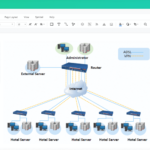Contract administration is the process of creating, negotiating, and approving a contract before it becomes legally binding. This involves gathering all relevant information from the parties involved to ensure that both sides understand what they are agreeing to, as well as ensuring that regulatory requirements are met.
Contract management covers everything that happens after a contract has been signed into effect, such as managing any changes or modifications throughout the course of the agreement and monitoring performance on either side in order to ensure compliance with regulations and deadlines outlined in the contract.
In addition, contract managers may also be responsible for providing support related to dispute resolution should disagreements arise between parties during the course of their agreement.
Ultimately both processes are essential parts of successful contracting and must work together in order for contracts to remain valid and enforceable over time.
Contract Administration
Contract administration is the process of managing the implementation, execution, and enforcement of contracts between two or more parties. It involves the preparation of contracts, including negotiation with parties, monitoring of progress, and enforcement of contractual obligations.
Best practices for contract administration include defining the contract scope, setting out contract deliverables and timeline, and ensuring that all contractual obligations are met upon contract execution.
This process also includes the creation of a document that spells out precisely what each party agrees to do and when it must be done. Additionally, a contract administrator should create a system for tracking changes to the contract and ensure that all parties understand their obligations under the contract.
Contract Management
Contract management is the process of managing all aspects of a contract from start to finish. This includes planning, implementation, negotiation, execution, and renewal. Contract management also involves monitoring performance to ensure compliance with the terms of the agreement, addressing disputes, and resolving issues that arise during the life cycle of the contract.
Best practices for contract management include keeping all of your contracts in one place, measuring contract management KPIs, tracking contract approval time, and conducting regular compliance reviews.
Additionally, it is important to have an organized system for tracking changes to contracts, preparing reports on performance against contractual milestones, and tracking key performance indicators (KPIs).
Conclusion
In conclusion, contract management and contract administration are two distinct processes within the overall contracting process. Contract administration involves the preparation of contracts and negotiation with parties, while contract management involves managing all aspects of a contract from start to finish. Best practices for both processes should be utilized in order to ensure successful contract execution.
It is important to remember that contract management and administration are two separate processes that must both be done correctly in order to ensure successful outcomes for all parties involved in a contract agreement.
Both processes require an understanding of legal concepts as well as an ability to identify potential risks associated with the agreement. Properly managing and administering contracts can help ensure compliance with contractual requirements and minimize potential risks associated with entering into a contractual relationship.





